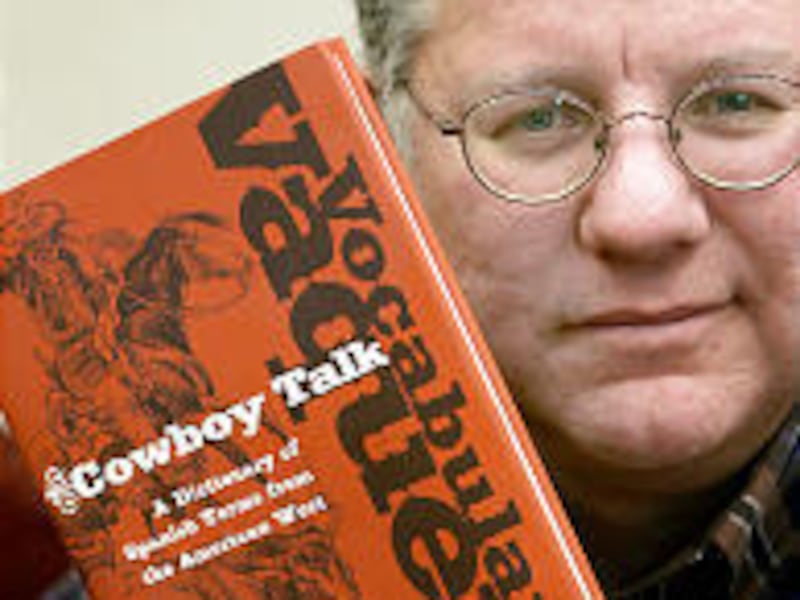PROVO — The Wild West, a period of time that lasted only a few short years before ranchers began fencing ranges more than a century ago, lives on in a new dictionary that traces the Spanish roots of cowboy lingo.
While researching the 198-page "Vocabulario Vaquero/Cowboy Talk," Robert Smead, an associate professor of Spanish at Brigham Young University, found that a definitive dictionary linking the vaqueros to the American cowboy didn't exist. His interest was spurred, he said, when he read a short glossary in a book called "The Last Buckaroo" by MacKey Hedges.
Cowboys can be traced to the end of the Civil War. When the soldiers returned, they found their cattle had gone wild, so they learned how to handle them from the Spanish vaqueros. Thus, the Spanish-American linguistic blend began, he said.
Many Western words and terms have Spanish origins. In fact, the Spanish influence is underestimated, Smead said.
For example, the word "dallying" comes from the Spanish "dale vuelta," which means to give the rope another turn around the saddle horn. Cowboys turned their ropes around the horn after lassoing a calf or steer to hold it fast.
Another word, "dogie," came from "dogal," which described a calf led around on a leash, he said.
The term "a good man" comes from the Spanish legal system.
"Hombre bueno" meant an arbitrator, known as a "good man."
"There's still a great deal of interest in the Old West," Smead said. "Given Utah's place in the West and the large number of people today who are or whose ancestors were involved in ranching and cowboying, the book has wide appeal," he said.
The new dictionary is essential for libraries of linguistics and history, said Richard W. Slatta, professor of history at North Carolina State University and author of "Comparing Cowboys and Frontiers."
Smead's book, out now for little more than half a year, has sold about 400 copies, with more than 130 of them going to libraries across the United States. The book can now be found in paperback.
On a whim, Smead sent the book to President Bush and received an acknowledgement back from the Texas rancher.
"Thank you for your kind gesture," the president wrote.
E-mail: rodger@desnews.com

